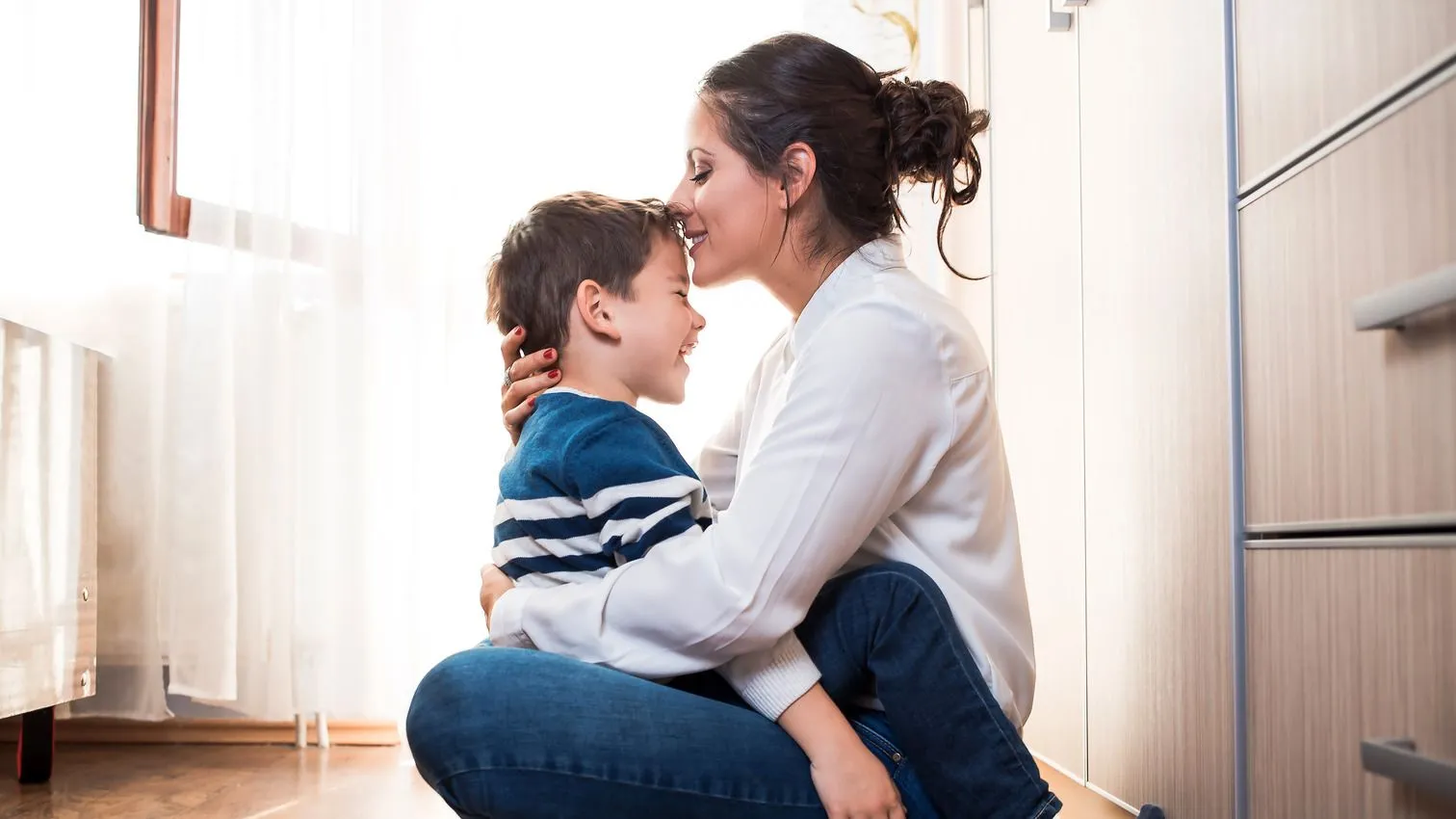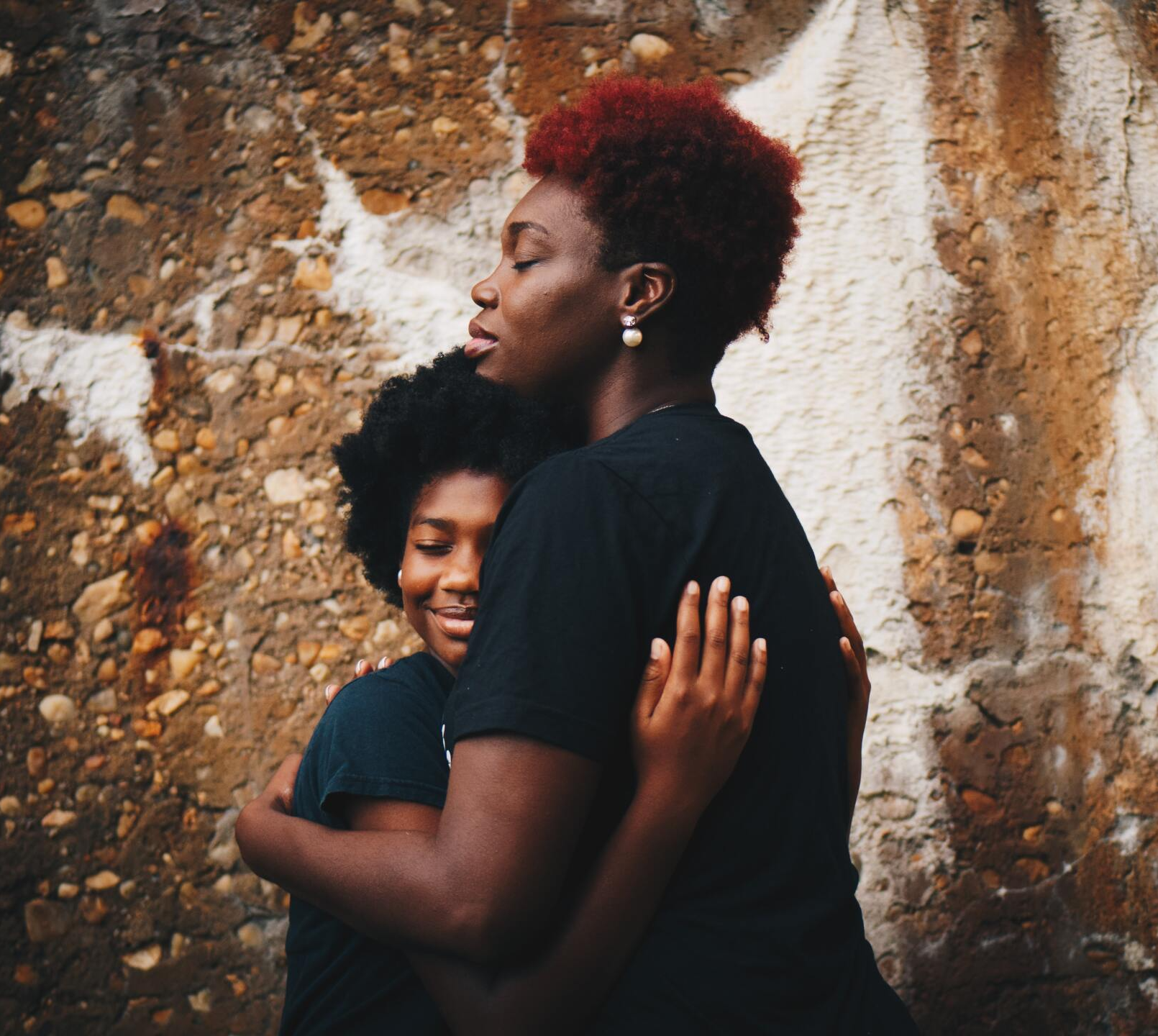The Psychology Behind Why Children Lie and How to Respond

All children lie. Let’s read that again: all children lie.
And yet, when it happens, many parents feel fear rise up:
- Am I failing my child?
- Will they grow up to be untrustworthy?
- What does this say about me as a parent?
And for many of us, we are tempted to lead the moment from that place of fear.
Cue the reactions, threats, and attempts to control our kids so they never lie again.
What if you could integrate this: lying is a normal part of childhood development.
Dr. Victoria Talwar explains on APA’s Speaking of Psychology Podcast that lying is part of a crucial stage of cognitive development, where children learn that information can alter someone’s thoughts and beliefs. In this way, lying is an experiment for children to learn how they can influence the environment and the people around them.
Because it can feel scary when our children lie, many of us respond by punishing, threatening, or even shaming our kids. We hope this will stop them from lying and give them a moral compass to know it’s “wrong”.
The trouble is that these strategies ignore the important developmental processes taking place. Our kids need our support to understand why they have these impulses to lie, how to work with their experimental curiosities, and to know that they have a safe and supportive place to make mistakes and learn without fear of punishment.
Dr. Talwar explains that a study found that the results of strict corporal punishment led to lying earlier and better. She explains that this is due to children’s strong motivation to avoid the experience of being punished or shamed. Lying becomes a more ingrained strategy to mitigate the negative consequences.
So, what do we do when our kids are lying if not punishment and shame?
Accepting that lying is part of childhood development doesn’t mean we dismiss it—it means we approach it with more wisdom and compassion. This opens us up to more creative ways for us to handle lying instead of reacting from a place of fear.
We can start thinking longer term and with a wider lens of perspective. When our kids are lying, they are needing something: support, comfort, reassurance, autonomy. We can cultivate our culture at home to be one where it is safe to speak honestly and receive support, connection, and guidance. Dr. Talwar says: “If we want to foster honesty, the biggest factor is whether a child believes the truth will be met with safety and support.”
Many parents fear that prioritizing connection means you don’t have boundaries, but the truth is:
The skill we parents get to develop is how to hold sturdy boundaries with love and connection in place, and how to validate feelings that arise in reaction without shifting the boundaries to relieve the pain.
Are you relieved and excited yet? Let’s explore what’s really going on beneath the surface when our children lie.
Common Psychological Reasons Kids Lie
There are many reasons why children lie—and spoiler alert: they all make sense.
Underneath all choices to lie lives a vulnerable and tender longing and need. Instead of addressing the lying behavior and moving on, we can get below the surface to know the why behind the lying and where our support is needed.
The most common reasons that kids lie include:
1. To Avoid Punishment
Let’s face it—being punished is not a pleasant experience. It creates a sense of fear and lack of emotional safety. Kids want to avoid this experience at all costs.
And here’s the reality: adults feel the same way.
Imagine this…
You make a mistake at work. Maybe you took a shortcut because you were tired one day, or you forgot to put a calendar reminder and missed something important. Your boss confronts you by shaming you and telling you in a harsh tone that what you did was not okay. As your punishment, you’re no longer invited to the work party happening later. You better hope it doesn’t happen again, or else you will be met with a fiercer punishment—being fired.
How do you feel? My guess is that you don’t feel supported to do better next time. You are most likely either feeling filled with shame and embarrassment—wanting to hide and binge-watch Netflix—or feeling rage—planning your getaway from this job as soon as possible.
What if you could have lied to avoid this punishment? Would you think twice next time about whether it’s safe to tell your boss the truth?
When we put ourselves in our kids’ shoes, we can
begin to create more empathy for their hardest moments.
2. To Gain Approval or Get Attention
Another reason why kids lie is to look better and gain admiration from their peers. It comes from an innocent longing all of us humans have—a desire to be seen and celebrated. All humans want to belong, and sometimes we are even willing to do things against our morality to seek our belonging. We can have compassion for that desire.
Have you ever twisted the truth to make yourself look better in your life?
Could you understand why someone with a less developed brain than yours and less life experience might try this strategy?
Instead of shaming our kids, we can talk to them about their real innocent longing. We can tell them, 'I understand that feeling—I’ve wanted to be liked so badly I stretched the truth too.' We can also
help guide them to more mature and healthier expressions to get that belonging.
3. Curiosity and Learning about Social Dynamics & Morality
Kids also lie to experiment while they learn about social dynamics and as they develop their sense of morality. They lie as an exploration to curiosities like:
How do people know if I am telling the truth or not? How do I feel when I lie? What happens when I lie—how do others feel, and what changes around me?
Experience is how we humans learn best—mistakes and all. Feeling the guilt about lying is an important part of the experience because it tells us that lying didn’t feel good or right. If we add shame to the mix, it can push our kids out from the healthy guilt they may be experiencing. What if, instead of shaming them,
we supported them through that guilt with curiosity:
How did it feel to lie? What did you notice? What might you do next time?
Now we are inviting some deeper awareness and maturity to develop.
Now that we’ve explored the emotional and relational roots of lying, let’s take a look at the cognitive growth that supports it.
How Cognitive Development Influences Lying
Lying isn’t just a behavior—it’s a cognitive milestone.
The ability to lie requires several developing brain functions working together: executive functioning, moral reasoning, and theory of mind (the ability to understand that other people have different thoughts and perspectives).
In early childhood (ages 3–5), children begin to understand that others can hold beliefs that are different from their own. This is a foundational element of “theory of mind”—and it’s also when most children begin to tell their first intentional lies.
As children’s executive functioning develops (especially inhibitory control and working memory), their ability to plan, withhold information, and sustain a lie improves. One study showed that children's ability to maintain a lie over time was closely linked to their understanding of second-order beliefs (Evans & Lee, 2011).
In other words, knowing not just what someone else thinks, but what someone else thinks you believe. That’s sophisticated cognitive work! In fact, research suggests that lying is closely tied to the development of executive functioning, which takes many years to fully develop (Zelazo & Muller, 2002).
Additionally, moral reasoning begins to emerge as children reflect on why lying feels wrong, or why it might hurt others. When we foster open conversations about values like honesty, empathy, and impact, we help this development unfold in a healthy way.
Now that we’ve explored the emotional and cognitive layers of lying, let’s look at how these behaviors show up at different developmental stages. This helps us meet our kids where they are, with age-appropriate support and empathy.
What Lying Looks Like At Different Ages
Lying evolves as children grow, and understanding what's typical at each stage can help you respond with more empathy and clarity. Here's a snapshot of how lying tends to show up developmentally:
Ages 2–4: The Emergence of “Pretend Truth”
At this age, lying is usually a blend of fantasy and play. Your child might say, “I didn’t eat the cookie,” with crumbs all over their face—not because they’re being manipulative, but because they’re learning the difference between imagination and reality. This is often their first foray into understanding that what they say can influence what others think.
What to do: Gently reflect reality back to them with kindness. You might say, “I see crumbs on your face—did you hope I wouldn’t notice?” Then validate their desire (“It must’ve been hard to wait for the cookie”) and teach honesty through connection, not correction.
Ages 5–7: Testing Boundaries and Understanding Morality
Children begin to lie more deliberately and develop a “theory of mind”—understanding that others can believe something different from what they do. They’re also beginning to understand rules and consequences and may lie to avoid getting in trouble.
What to do: Emphasize safety in telling the truth. Celebrate honesty. Use natural consequences and gentle reflection: “Thank you for being honest—it’s not always easy. Let’s talk about what happened together.”
Ages 8–12: Social Experimentation and Peer Influence
Lying can become more strategic as cognitive skills sharpen. Children this age may lie to gain peer approval, avoid embarrassment, or protect themselves from judgment. They may also test out lying to see how trustworthy others are—including you.
What to do: Stay curious. Create open dialogue around honesty, reputation, and character. Share stories or examples from your own life when telling the truth felt hard but important.
Teens: Autonomy and Privacy
Adolescents may lie to assert independence, protect their privacy, or avoid conflict. Lying during this stage is often less about morality and more about
your teenager trying to navigate identity, boundaries, and trust.
What to do: Prioritize trust and relationship over control. Invite collaboration and honest dialogue. Avoid overreactions to foster a culture where your teen wants to come to you—even when they’ve messed up.
Strategies for Fostering Honesty in Children
Children's lying is a natural part of development, but how your child develops their unique moral compass and beliefs around lying will be influenced by:
- The connection between you and your child
- How safe is it for your child to come to you to talk about hard things without losing love and compassion
- How much respect exists mutually between you and your child
- Your child’s perceived autonomy
Here is a framework you can try on for fostering more honesty in your home:
4 Cs of Cultivating Honesty
1. Connection
Children are most honest when they feel connected to and emotionally safe with their caregivers. When we lead with empathy and attunement, we create a space where truth feels welcome—even when it’s hard.
Try this: Instead of reacting to the behavior, pause and connect. Say, “I’m here. Let’s figure this out together.”
2. Curiosity
Before assuming intent, get curious. Lying is often a symptom, not the root cause. When we respond with “I wonder…” or “Tell me more…,” we signal that their inner world matters and is worth understanding.
Try this: “I wonder if you were feeling nervous about what might happen if you told me the truth.”
3. Consistency in Modeling
Children watch more than they listen. If we expect truthfulness, we must practice it ourselves—with integrity, vulnerability, and even imperfection. That means owning our own mistakes, being honest in small everyday ways (even when it's hard), and showing them what emotional courage looks like.
Try this: Instead of brushing things off or telling “white lies,” try: “I’m not ready to share that right now,” or “That’s something I’m still figuring out myself.”
4. Consequences with Compassion
While boundaries and accountability matter, we canteach consequences in a way that invites learning, not shame. When kids know they won’t be punished or humiliated for telling the truth, they’re more likely to come forward next time.
Try this:
“Thank you for telling me. It was really brave. Let’s talk about what we can do differently next time.”
How Parents Can Build Trust and Openness
We want our kids to be honest—and also polite. But sometimes, these values can come into conflict.
For example, if your child gets a gift at a birthday party that they don’t like, what do you encourage them to do: pretend to like it in the name of “kindness” or tell the truth like “I already have this” or “I don’t like this one”.
Do you encourage honesty even if the recipient might not like what they have to say?
If we want our kids to be honest, we should think about the ways we encourage them to lie or twist the truth. We can allow their honesty to be met with support and guidance even when the truth isn’t what we were hoping to hear.
The value of honesty is cultivated over time and reflects the family’s culture, commitment, and practice. You can cultivate honesty as a value by talking about it, acknowledging and recognizing when it happens, and modeling it.
Here are a few additional ideas to consider:
Encourage Collaboration and Problem Solving
Include your child in some decisions, or at least understand why the decisions were made the way they were. When your child doesn’t like a decision or has feelings come up, support them without letting it threaten your decision.
You can invite collaboration by saying something like “You wanted to go to that party, and I said no. That must feel so bad for you, and I would love to explain to you how I got to this decision and hear your feelings about it. I would love to explore some ways we could communicate better next time. Would you be open to that?”
Recognize Honesty and Celebrate It
When honesty occurs with our kids, let’s take the time to recognize and celebrate. In a 2014 study by Dr. Kang Lee and colleagues, they found that learning stories focused on the positive outcomes of honesty influenced kids’ moral development over stories that focused on the negative outcomes of lying. Children need encouragement and celebration when they take steps that align with our family values.
Have Intentional Conversations about Honesty
Make space for intentional conversations about your family values and why they matter. Talk to your kids about the importance of honesty. Tell them of your intention to support them and help them grow into their own person. When we make mistakes or our kids make a mistake, we can explore the deeper layers of what happened for us and why we made a choice that was not in alignment with our values. That will help us brainstorm different ways to get those needs met.
When we understand that lying is not a sign of moral failure but a normal part of growing up, we can learn to stop reacting in fear and start parenting with purpose. Each lie is an invitation into deeper connection, trust, and learning—both for our children and for ourselves.
Next time a lie arises, pause. Breathe. Instead of seeing it as a threat, see it as an invitation to connect more deeply, guide more gently, and grow together. This is what conscious parenting is all about.
Meet Your Author, Marissa Goldenstein
Marissa Goldenstein, a Jai Certified Master Parent Coach, is devoted to guiding parents toward mindfulness and joy in their parenting journey. Marissa demonstrates a proven commitment to innovative education, having a history as a co-founder of a visionary elementary school that focused on cultivating changemakers through curiosity, connection, and community. Leveraging her MBA and an MA in Experimental Psychology, she seamlessly integrates both business and human development insights into her coaching practice.
Beyond coaching, Marissa embraces mindfulness in her own parenting alongside her partner and their two sons, engaging in family dance parties and adventurous learning experiences whenever possible.
http://marissagoldenstein.com
READ MORE:
Curious for more?














